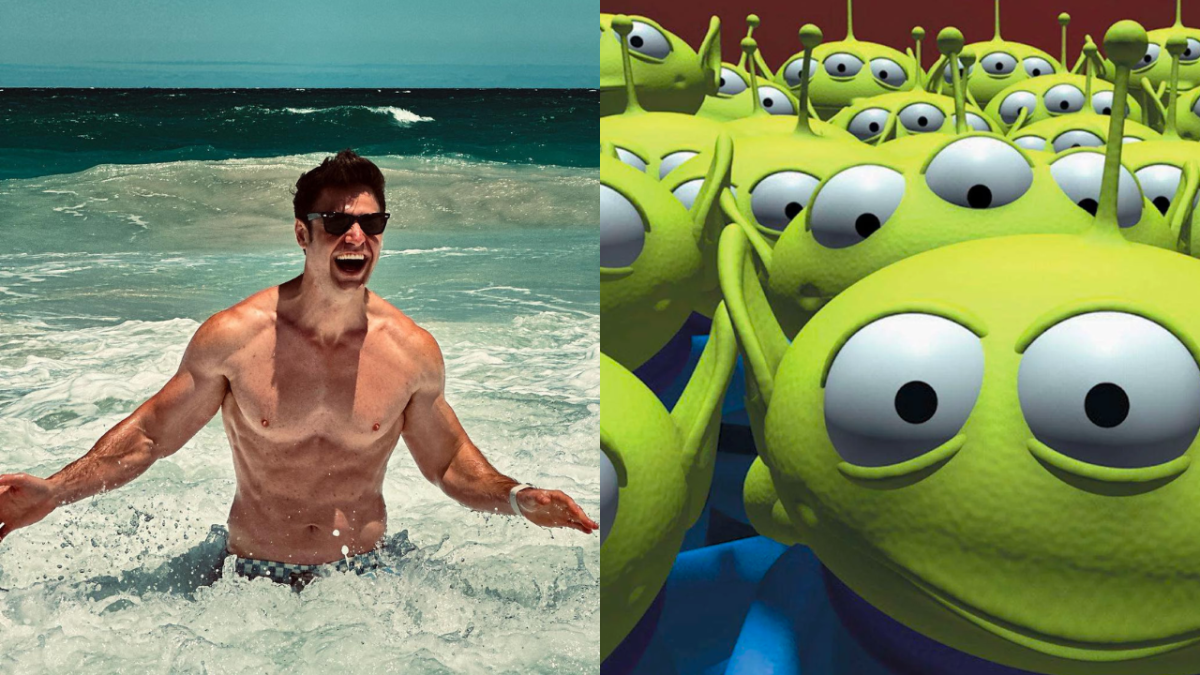
Dr Matt Agnew isn’t just your fave Bachelor slash astrophysicist (sorry Professor Brian Cox), he’s now also an author. Talk about a bloody triple threat.
Dr Matt’s Guide To Life In Space was released earlier this year. Let me tell ya, if there’s an outer space nerd or alien fan in your life this aptly-titled book is the ideal stocking stuffer.
Matt sat down with PEDESTRIAN.TV to chat about the book, space and of course, the age old question: do aliens exist?
This conversation has been edited for length and clarity.
What inspired you to write the book?
The book is the combination of two passions of mine. The one that I guess most people are familiar with is the one I was thrust into the spotlight with, which is my love of space and astrophysics. Everyone that’s familiar with me is kind of across that!
The other one is less known, which is [that] I’ve been really interested in fostering a love of science in others for a long time. That’s kind of spanned over a decade previously, when I worked as a private tutor, and then when I was doing my PhD and research working as a tutor and lab teacher. And then it’s led into public lectures, scientific outreach, and communication and all of that.
Throughout all of that stuff I’ve loved that “aha!” moment, or the light bulb moment you see in someone when they grasp an idea or concept, and it just clicks for them.
The book for me is both of those passions and being able to combine them into one thing. And that’s my love of space and writing it in a way that’s really accessible, really engaging, really enjoyable and that reignites the scientific curiosity for people.
I think everyone has a love of science from a young age, and sometimes they lose that for whatever reason. I’m trying to thaw that out I guess.
I imagine this is an area where people get an idea that they’re bad at it and then it disinclines them from pick up a book about science. Is that something you’re trying to address?
Absolutely. I think science can be a dry topic at times. And it can be very technical, very jargon-heavy and that can obviously push people away. But to your point, people often love science, and then maybe for some reason, they’ve had a really bad experience… it’s squashed that passion for science and it never recovers.
I guess it’s a gentle reminder that everyone is smart enough to enjoy science.
Is there a particular element of life in space that you were most excited to write about?
I mean, all of it, really. But I think for me, one of the things I love talking about is there’s a couple of moons in our solar system that do look like they have a lot of the ingredients for life to exist.
Certainly, on Earth there’s similar kinds of environments to what we think are on these moons. And those environments on Earth, we find life. So if life’s as simple as just “put the right ingredients together”, and life kicks off, you know, these moons are starting to show that they might have all the ingredients.
It’s really fascinating to think about; certainly there are initiatives by NASA and other space agencies to explore these things. It’s going to require some serious engineering technology to actually achieve that.
But it’s fascinating because if we found life, then it’s a bit of a smoking gun for “it’s just a case of the right ingredients”. But if we don’t, then it’s saying something really unique and special has happened here on Earth and we’re still not sure what that is.
Do you have a favourite section of the book?
I do love part three, and part three happens to be “Where are the aliens?”
The whole thing’s really enjoyable for me. The whole narrative and the journey it goes along and how we started on Earth and gradually expanded our net of exploration. But the part about aliens, it’s an area I think everyone loves.
Everyone goes through an alien phase. I think it’s after the dinosaur phase, before the robot phase as a kid.
It’s sort of the collision of science fiction and science, that’s where scientific discovery is at the moment. And that’s really exciting because things that have historically been science fiction —they’re getting close to reality.
The perseverance rover on Mars, for example. It has the instruments to be able to check if there was ancient fossilised life in these ancient riverbeds and deltas that we find on Mars. We are realistically looking for aliens.
I also have entertained some of the more out there ideas as well. The very last part [is] on the Fermi Paradox, which is the idea that there’s so many stars and likely so many planets, that it’s stacked in [our] favour that we should have seen or heard from something.
And the fact that we haven’t — trying to come up with hypotheses why that might be — is a very interesting and sometimes quite scary area to kind of postulate about.
What are you hoping people take away?
As I said, reigniting that childlike curiosity, bringing people who may have lost their passion for science, for whatever reason, back to it. For those that are scientifically inclined that they just continue to foster that love of science.
But at higher level, there is a decline in STEM within Australia, across both boys and girls. And it’s kind of concerning and increasingly so because of how [important it is] going forward. It’s going to be increasingly a large part of our lives. So a decline across the board is quite problematic.
And while I don’t think I can single handedly change that, I’m hoping that this will contribute to a broader impact in trying to slow that decline and hopefully reverse it!



